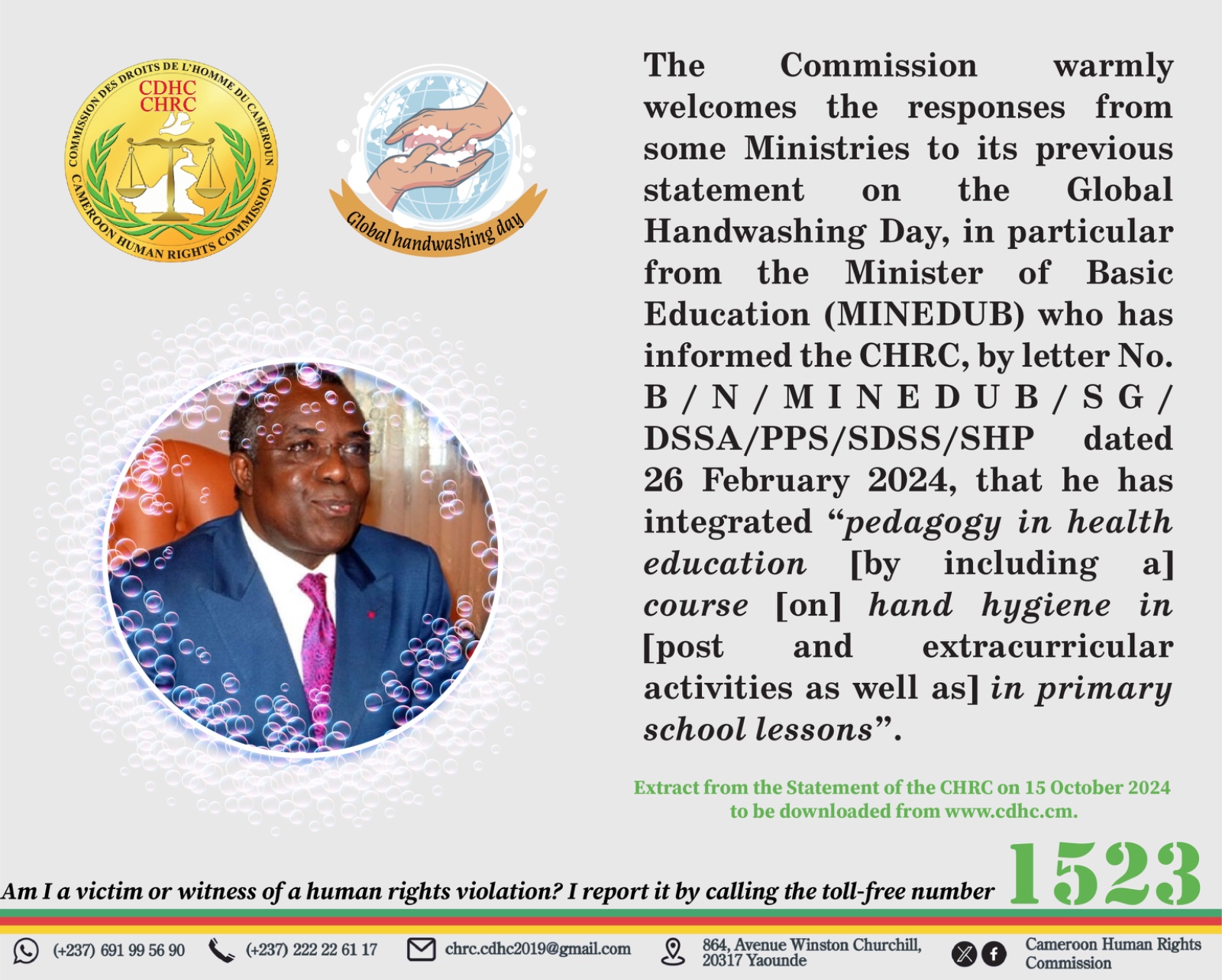
Theme.- Why are clean hands still important?
The Commission, along the United Nations Children’s
Emergency Fund (UNICEF) and the World Health Organisation (WHO), recognises
that it has become clear over time that “hand hygiene [helps] prevent a wide
range of respiratory and diarrhoeal diseases and [is thus a crucial tool] in
fighting bacterial infections in health care facilities.” This justifies the
recognition of hand hygiene as an essential public health intervention, a trend
that gained general momentum in the early 2000s.
The Commission emphasises that improving hand hygiene
behaviour is essential beyond public health emergencies, such as during the
COVID-19 pandemic, because, as the Global Partnership for Handwashing has
clearly recognised, "clean hands remain a fundamental defence against the
spread of infection, disease and harmful germs [whether] […] in hospitals, [in]
schools, or in everyday interactions, [especially as] practicing handwashing
with soap contributes to better health outcomes and a safer world for everyone".
The Commission recalls, with the Global Partnership
for Handwashing, that “hand hygiene, whether through handwashing with soap or
alcohol-based hand rub, can reduce diarrheal diseases by 30 per cent, reduce
acute respiratory infections by up to 20 per cent, play an important role in
reducing the transmission of outbreak-related pathogens such as Cholera, Ebola
virus, Shigellosis, SARS, hepatitis E, COVID-19 and monkey pox, protect against
healthcare-associated infections and contribute to reducing the spread of
antimicrobial resistance. It may [as well] contribute to the reduction of
neglected tropical diseases”.
The Commission warmly welcomes the responses from some
Ministries to its previous statement on the Global Handwashing Day, in
particular from the Minister of Basic Education (MINEDUB) who has informed the
CHRC, by letter No. B/N/MINEDUB/SG/ DSSA/PPS/SDSS/SHP dated 26 February 2024,
that he has integrated “pedagogy in health education [by including a] course
[on] hand hygiene in [post and extracurricular activities as well as] in
primary school lessons”.
The Commission takes into account the National
Development Strategy 2020-2030 (NDS 30) to achieve Sustainable Development
Goals (SDGs) by 2035, one of the Objectives of which is to encourage people to
adopt healthy behaviours conducive to their health, by working with
municipalities to ensure compliance with minimum standards of hygiene and
sanitation in residential areas and health facilities (acronym in French:
FOSA), and by providing patients with quality health care.
The Commission specifically recommends that civil
society organisations raise awareness among the population about the risks of
neglecting basic hygiene measures, especially regular handwashing with running
water and soap.
The Commission strongly recommends that the
population, especially parents, adopt and encourage healthy behaviours through
simple and inexpensive measures such as hand washing, to protect the health of
the family.
#CHRC
#CDHC
#1523
#Accreditedwith A Status
#Accréditée au Statut A

SOME EXTRACTS OF STATEMENT BY THE CHRC TO MARK THE 7th INTERNATIONAL DAY OF EDUCATION, 24 January 2025

SOME EXTRACTS OF THE STATEMENT BY THE CAMEROON HUMAN RIGHTS COMMISSION TO MARK THE 25TH INTERNATIONAL DAY FOR THE ELIMINATION OF VIOLENCE AGAINST WOMEN, 25 November 2024

SOME EXTRACTS OF THE STATEMENT BY THE CAMEROON HUIMAN RIGHTS COMMISSION TO MARK THE WORLD CHILDREN’S DAY


SHARE THIS NEWS!